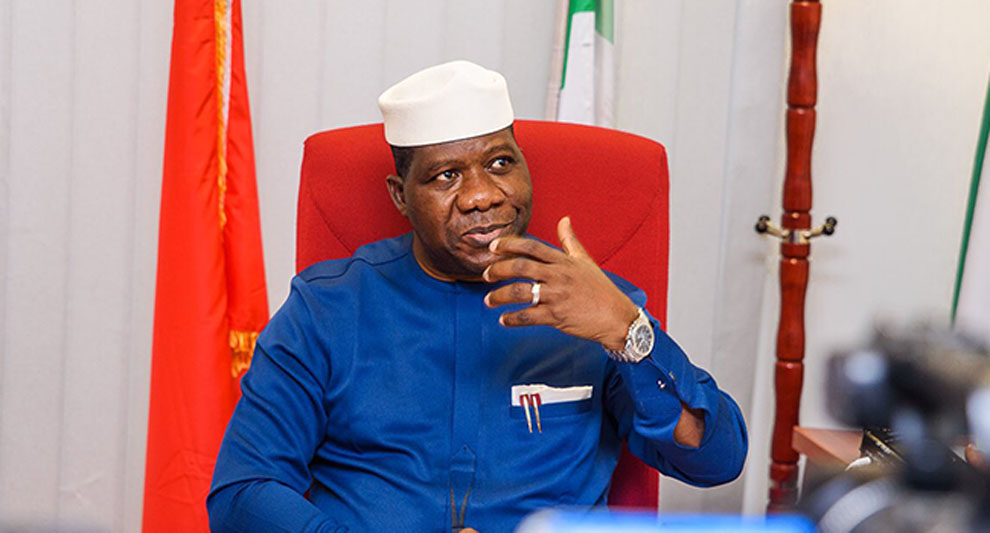

Senate Leader Opeyemi Bamidele
Insecurity: How to make state police effective, by Senate leader
Senate leader, Opeyemi Bamidele, has said that the establishment of state police will go a long way to addressing the insecurity across the country.
Bamidele, who stated this in Abuja on Monday in a statement issued by his media office described the current state of policing in Nigeria as “ailing and dysfunctional.”
The statement read in part, “We must admit that the system can no longer guarantee the dignity of human lives and the security of collective assets considering our security dynamics in the Fourth Republic.
“The proposal for the creation of state police has been a subject of intense debate in the last decade or more.
“This, in part, can be attributed to the rise of armed attacks orchestrated by diverse interests either pursuing divisive agendas or seeking predatory ends in virtually all geopolitical zones,” he said.
He noted that Nigeria, one of the world’s fastest-growing nations in terms of population, could not continue to operate a centralised policing system.
READ ALSO:
“Such a policing model cannot meaningfully address existential threats to our internal cohesion and stability. Unlike in 1979, when we had a population of 70.75 million, Nigeria is now a federation of about 229 million people and is currently the world’s sixth-biggest country.
“This is as shown in the demographic data of the United Nations. Contrarily, as revealed in the recent presentation of the Inspector-General of Police, Kayode Egbetokun, Nigeria has a police-citizen ratio of one to 650.
“This ratio is a far cry from a ratio of one to 460, which, according to the United Nations, is a minimum requirement for every sovereign state or territory worldwide,” the Senate leader said.
The lawmaker further noted that the ongoing review of the 1999 Constitution would allow stakeholders to interrogate the nation’s security framework and take a position on the desirability or otherwise of state police in the country.
“We must go about it (state police) with a clear sense of self-realisation. We must, first and foremost, realise that the present police system is ailing and dysfunctional.
“We must also admit that the system can no longer guarantee the dignity of human lives or the security of collective assets.
“With this admission, it is evident that the option of adopting state police is no doubt inevitable as an antidote to the diverse security challenges that threaten us as a federation,” he said.
The Senate leader further said that as the debate for a more efficient police model continued, the National Assembly was under obligation to provide a legal framework with clearly defined preconditions.
“Sub-national governments must conform to the preconditions before establishing their policing formation. The role of all 36 state Houses of Assembly is equally indispensable in the quest to adopt the decentralised police system,” he said.
The bill for the establishment of the state police is currently in the National Assembly. In February, the House of Representatives passed the bill for the second reading.
The bill, sponsored by the Deputy Speaker of the House, Benjamin Kalu and 14 others, seeks to alter the relevant Sections of the 1999 Constitution to pave the way for states to establish their policing outfits.
Punch
No Sallah durbar festival in Kano this year - Police warn There will be no…
$100m coin collection buried for decades to be auctioned A coin collection, much of which remained…
We won’t stop Sharia panels from operating in Oyo – Gov Makinde Oyo State Governor,…
EFCC re-arraigns son of ex-PDP chairman for alleged N2.2bn oil subsidy fraud Mamman Nasir Ali, the son…
Group says Natasha’s recall will deepen democracy The Campaign for Democracy, a civil society organisation,…
We welcome Gov Makinde’s U-turn on Shari’ah panel – MURIC The Governor of Oyo State,…